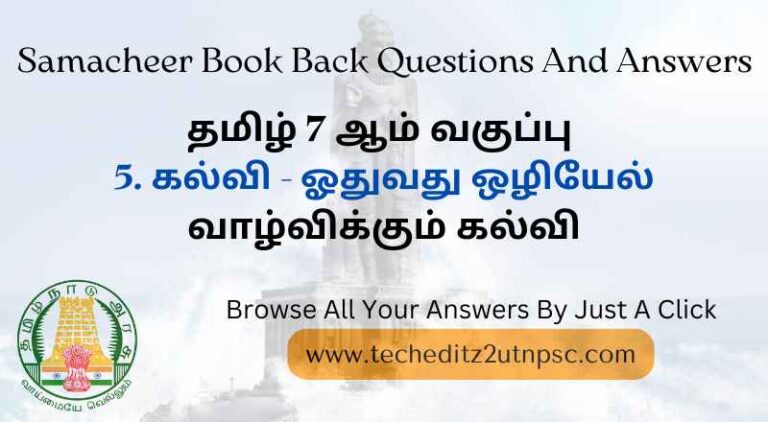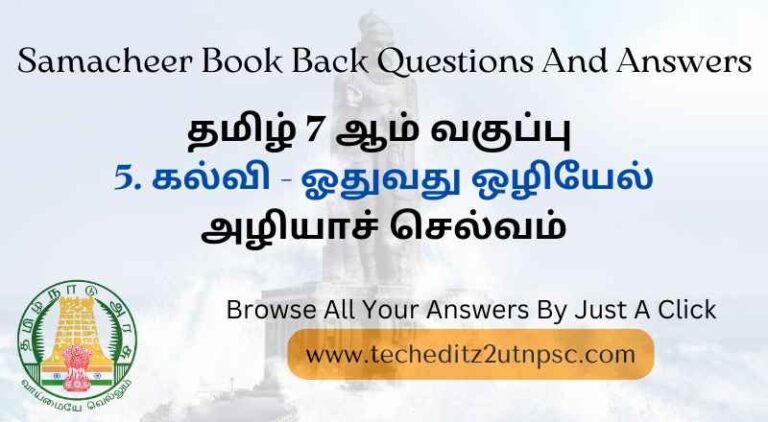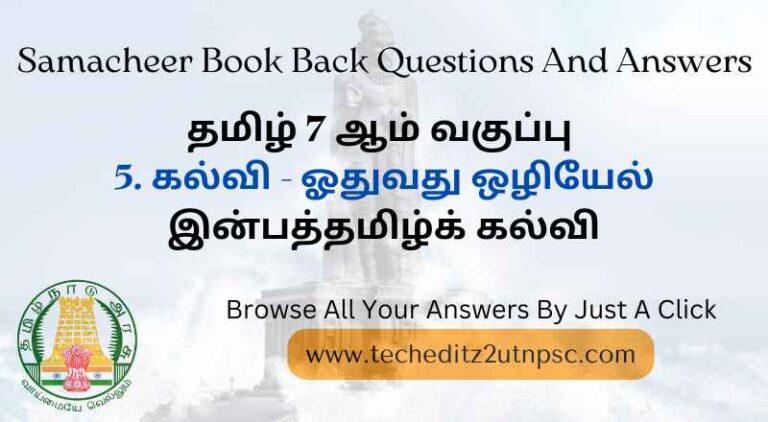support@techeditz2utnpsc.com | 8300-921-521
Market And Consumer Protection
Samacheer Book Back Questions And Answers For Indian Polity Standard 7 Term 3 “Market And Consumer Protection”
I. Choose the correct answer:
1. In which case a consumer cannot complain against the manufacturer for a defective product?
(a) Date of expiry unspecified
(b) Price of the commodity
(c) Batch number of the commodity
(d) Address of the manufacturer
2. Consumer’s face various problems from the producer’s end due to
(a) Unfair trade practices
(b) Wide range of goods
(c) Standard quality goods
(d) Volume of production
3. Consumers must be provided with adequate information about a product to make
(a) Investment in production
(b) Decision in sale of goods
(c) Credit purchase of goods
(d) Decision in purchase of goods
4. The system of consumer courts at the national, state, and district levels, looking into consumers grievances against unfair trade practices of businessmen and providing necessary compensation, is called
(a) Three tier system
(b) One tier system
(c) Two tier system
(d) Four tier system
5. Mixing other extraneous material of inferior quality with a superior quality material is called
(a) Purification
(b) Adulteration
(c) Refinement
(d) Alteration
II. Fill in the blanks:
1. A set up where two or more parties engage in _____ of goods, service and information is called a market.
2. In regulated Markets, there is some oversight by appropriate _____ authorities.
3. _____refers to a market structure in which there is a single producer or seller that has a control on the entire market.
4. _____statue is regarded as the ‘Magna Carta in the field of consumer
Answers:
1. Exchange
2. Government
3. Monopoly
4. COPRA
III. Consider the following statements:
Assertion: In local Markets the buyers and sellers are limited to the local region or are
Reason: A market is not restricted to one physical or geographical location.
(a) Both, A and R, are true and R is the correct explanation of A
(b) Both, A and R, are true but R is not the correct explanation of A
(c) If A is true but R is false
(d) If A is false but R is true
IV. Match the following:
1. The Consumer Protection Act A. 1955
2. The Legal Metrology Act B. 1986
3. The Bureau of Indian Standards Act C. 2009
4. The Essential Commodities Act D. 1986
Answers:
1. D
2. C
3. B
4. A


